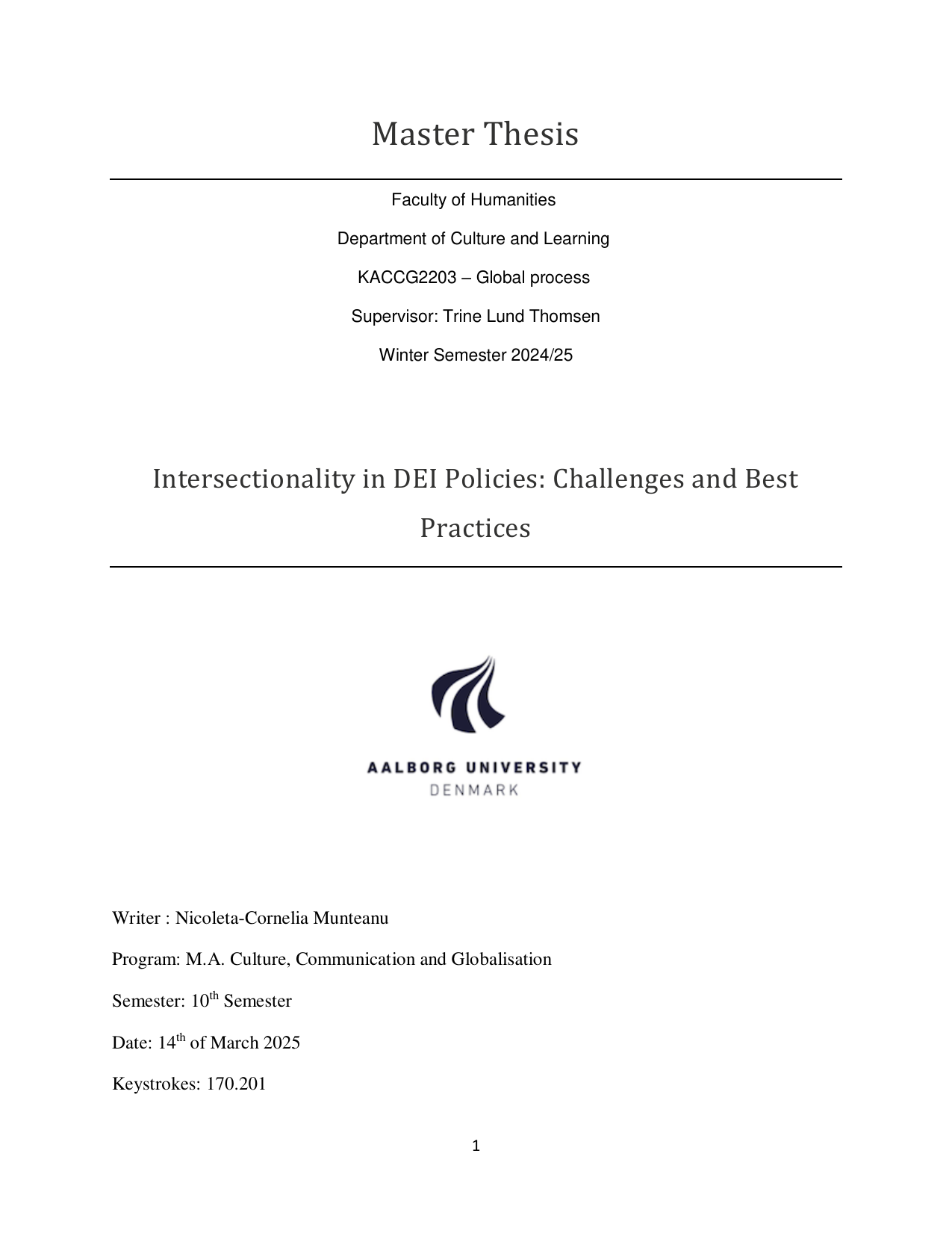
Intersectionality in DEI Policies: Challenges and Best Practices
Author
Term
4. term
Publication year
2025
Submitted on
2025-03-14
Pages
85
Abstract
Despite the increasing focus on DEI policies in corporate settings, numerous frameworks neglect to consider intersectionality, failing to recognize how various identity factors—such as ethnicity, gender, disability, and socioeconomic status—interact to influence workplace disparities. This research aimed to evaluate the efficacy of DEI policies in addressing the intricacies of disadvantaged identities and to investigate potential enhancements for achieving more inclusive and equitable results. The research used a social constructivist framework, which emphasizes the role of social context and shared meanings in shaping individual experiences and identities, to analyze the formulation of corporate policy DEI. This framework was chosen for its ability to incorporate intersectionality theory, CRT, and neoliberal criticisms of DEI, and it also utilized CDA and qualitative content analysis to examine the DEI policies of Unite, EU, European Energy, and BE IT, concentrating on policy language, institutional transparency, and organizational commitments. The study indicates that existing DEI policies emphasize gender diversity while offering less consideration to ethnic, disability, and socioeconomic inequalities. Diversity is frequently characterized as a business advantage associated with innovation and efficiency rather than a fundamental commitment to social justice. Although policies articulate official pledges to inclusion, they lack precise enforcement mechanisms, management accountability, and quantifiable diversity goals, depending instead on volunteer efforts and symbolic actions like Employee Resource Groups (ERGs). This study significantly advances the field of DEI and organizational policy analysis by demonstrating that many corporate DEI initiatives are more about appearance than actual change. It underscores the practical implications of intersectional, enforceable DEI frameworks that include explicit accountability mechanisms, data-driven progress assessment, and structural reforms. By addressing these deficiencies, businesses can move beyond mere promises and implement inclusive policies that actively dismantle fundamental obstacles in the workplace.
Documents
